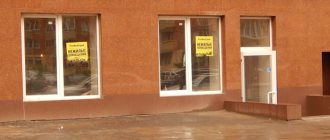Normative base
Regulations:
- Part 4 of Article 22 of the Housing Code of the Russian Federation talks about the process of changing the status of the premises.
- The Town Planning Code describes the requirements for premises. The conditions for premises located in the city are also presented.
- Federal Law of July 13, 2015 N 218-FZ. He talks about real estate registration.
- Decree of the Government of the Russian Federation of January 28, 2006 N 47 on the peculiarities of recognizing premises as residential.
- SNiP 01/31/2003. They set out requirements for the transfer of property.
- SanPiN 2.1.2.2645-10, which describes the standards for premises.
Restrictions
Transfer cannot be made in the following cases:
- If the property is not considered part of real estate located in a zoned residential area that is equipped with utilities.
- If property structures are not in proper operating condition, they have cracks and other damage that pose a danger to the health of citizens.
- If communication systems are located in places accessible to people and pose a risk to their health.
- It does not have a water leakage protection system that is used in everyday life.
- If the property does not have utilities, electrical networks, a security system, heating gas and water supply.
Step-by-step algorithm
Stages of the procedure and where to go:
- We are preparing a project for reconstruction or redevelopment. Consent from other apartment owners is required when common property is affected. This is stated in Part 2 of Article 40 of the RF Housing Code.
- We prepare the papers. The procedure is recorded in Part 2, 2.1 of Article 23 of the Housing Code of the Russian Federation, clause 2.5.1.1 of the Administrative Regulations, approved by Decree of the Moscow Government of October 27, 2015 N 692-PP. The citizen will need: an application for the need to provide a service; passport; title papers for the premises, executed before January 31, 1998 - original and notarized copy; reconstruction or redevelopment project; minutes of the owners' meeting; Additionally, a notice of the meeting and its delivery to all owners, a registration sheet for participants, decisions on all important issues, and a list of citizens who came are attached; conclusion on the compliance of the premises with the requirements.
- We contact the authorities providing the service. In Moscow - Department of City Property. Paperwork is completed through the MFC or the Internet. The procedure is fixed in part 2 of article 23 of the Housing Code, clause 2.3.3 of the Administrative Regulations. After submitting the papers, the person is given notification of their acceptance. They are reviewed within 48 days. This is regulated by clause 2.7.1 of the Administrative Regulations. The citizen is notified of the decision. The procedure is described in Part 5 of Article 23 of the Housing Code. If a citizen does not agree with it, he can appeal it within 3 months.
- We carry out the redevelopment of the premises and receive a certificate from the acceptance committee. This is regulated by parts 8, 9 of Article 23 of the RF Housing Code. It takes 10 days to complete.
- We contact a cadastral engineer and prepare a technical redevelopment plan. This action is regulated by articles 29, 36 of the Law of July 24, 2007 No. 221-F3. The plan is drawn up electronically, certified by signature and submitted to Rosreestr. This is regulated by clause 7, part 2 of article 14, part 12 of article 24 of Law No. 218-F3 of July 13, 2015, part 2 of article 36 of Law No. 218-F3.
- We are waiting for new data to be recorded in the Unified State Register. Then they are sent to Rosreestr and recorded in the database for about 15 days. This is regulated by Part 9 of Article 23 of the RF Housing Code, paragraph 5 of Part 1 of Article 32 of Law No. 218-F3. Within 1 week, Rosreestr sends a message to the person about the change in information. This is regulated by Part 5 of Article 33 of Law 218-F3, paragraphs 2, 3 of Appendix 2 to Order No. 173 of the Ministry of Economic Development of Russia.
- We receive an extract. This is regulated in paragraph 30 of the Procedure for providing information, approved by Order of the Ministry of Economic Development of Russia dated December 23, 2015 N 968.
Required documents
The procedure for transferring residential premises to non-residential premises is not complete without a decision of the self-government body. To accept it, a special package of documents is required. The composition of the papers is regulated by Article 23 of the Housing Code:
- application (a documentary request for the transfer of residential premises to non-residential premises is drawn up according to the established template);
- accompanying papers for the transferred living space (originals or exact copies with a notary’s seal);
- technical plan and detailed description (if the object is residential, a technical passport is also required);
- floor plan of the house;
- a carefully prepared renovation project.
The listed list of documents for transferring residential premises to non-residential premises in 2020 is as complete as possible and does not need to be supplemented. If local officials demand other documents, their actions can be considered illegal.
List of documents
The following papers are submitted:
- An application drawn up by the owner, which sets out a request to transfer the premises.
- Cadastral passport confirming ownership. The owner can also submit a copy of this paper certified by a notary.
- Technical passport for the property, giving a description of the object. If design work was carried out on the property, this is also reflected in the passport.
- House plan. Usually it is obtained from the housing department. Using this document, experts determine the possible harm that may be caused to the entire house as a result of the transfer of property.
- Availability of written consent from neighbors.
- Pre-prepared redevelopment project.
What documents are needed to transfer residential premises to non-residential premises?
To transfer an apartment to non-residential premises you must have the following documents:
- application for transfer of residential premises to non-residential premises;
- a document proving your identity or documents proving the identity and authority of your representative;
- title documents for the apartment;
- technical passport for the apartment;
- floor plan of the house;
- project for reconstruction and/or redevelopment of the premises (if necessary);
- minutes of the general meeting of owners of premises in an apartment building with appendices, which include:
- notices of the meeting;
- lists of owners;
- powers of attorney (if representatives of the owners took part in voting at the general meeting);
- documents confirming delivery of the notice to each owner;
- registration sheet for meeting participants;
- results of voting on issues put to vote.
- decision of the guardianship and trusteeship authority confirming the powers of the legal representative (if the owner of the transferred premises is a minor citizen).
8. decision of the guardianship and trusteeship authority confirming the powers of the legal representative (if the owner of the transferred premises is a minor citizen).
But you may not prepare the documents specified in paragraphs. 4) and 5), as well as the document specified in clause 3), if the right is registered in Rosreestr. If you fail to submit these documents, the authority carrying out the transfer of premises will independently request them.
Nuances
In an apartment building
According to Article 22 of the Housing Code, an apartment in an apartment building can be transferred to non-residential status in the following cases:
- if it has ventilation, sewerage, electricity and water supply;
- the property is isolated and located in a residential area;
- the condition of the property is good and does not pose a threat to the lives of other citizens, including neighbors.
When converting non-residential premises into a residential apartment, it is important to first make a redevelopment project. Next you need to coordinate it with your neighbors.
For a dorm room
To re-register a room, you need the same papers as when re-registering an apartment. The person will also be required to provide written consent from all residents.
Additionally, you will need to fill out an application with the housing service. If a person is refused, he can apply to the court.
For garden house
A significant disadvantage of converting a country house into residential property is that it is usually built on a plot of land that is intended for vegetable gardening.
This means that it is impossible to build permanent buildings on them for year-round living without first changing the purpose of the land.
This resolution on changing the nature of land use is made by the municipality, administration, department that is responsible for the housing stock. If a citizen receives a positive decision, then he should contact the Cadastral Registration Authority. He issues a new cadastral passport for the land and residential building. Next, the person registers the received documents in the Unified State Register.
Important! In most cases, the court recognizes buildings as residential only if they are built on land intended for individual housing construction.
For a private residential building
If the house is located on land that is intended for individual housing construction, then it can be converted into residential. However, this requires that it be suitable for year-round use.
If it does not meet technical standards, then everything needs to be eliminated and redevelopment done; There will be no further problems with translation.
Preparatory stage
One of the key conditions for converting municipal residential premises into non-residential premises is the physical ability to build a separate exit/entrance. It should not communicate with the common entrance to other apartments or use the entrance. Not in all cases it is possible to equip a separate entrance from a technical point of view.
Attention! Involving a special organization in the process of technical resolution of the problem (preparation of project documents) does not guarantee a positive result. To be on the safe side, you should carefully study the qualifications of the selected organization, reviews about it, etc.
Also, at the preparatory stage, difficulties may arise in the field of land relations. The list of problems of this kind is quite diverse. For example, difficulties that are associated with the legal regime of the territory related to the building. When changing the categories of plots from Zh-1 (stands for “housing construction”) to R-2 (implies only recreational purpose), any opportunity to place any objects of household significance is lost. In this case, the applicant will be denied the application to transfer residential premises to non-residential premises due to legal inconsistency. Such a refusal to transfer residential premises to non-residential premises is quite common in legal practice and is not subject to appeal in court.
What about the land plot?
The transfer of land intended for agricultural needs into land for individual housing construction is possible. The process is described in the Land Code of the Russian Federation and N 172-FZ.
According to them, a site with a facility for individual housing construction must be classified as land belonging to populated areas.
Transferring such land to another category leads to a loss of its value and state income. If the owner needs to do this, then he is obliged to reimburse the state for part of the income spent.
These losses can be avoided if the owner has built an object on an agricultural plot that has the status of individual housing construction.
However, according to the Town Planning Code of the Russian Federation, some land plots cannot change their status and transfer them to residential.
This applies to land plots that have agricultural status.
They can be transferred to another category only when the boundaries of settlements are changed.
This happens in the following cases:
- if the site is located close to the border of the functional zone, which is provided for by the general plan;
- planning the intended purpose of these lands in the future as a reserve for the development of a settlement.
It is most profitable to transfer land from land intended for agriculture to individual housing construction.
When is refusal possible?
A person who wants to transfer premises is often refused. This is regulated by Article 24 of the RF Housing Code.
It can be obtained in the following cases:
- if they are not provided with a complete list of necessary documents;
- the citizen submitted documents to the wrong authority;
- they have not met all the conditions required to be fulfilled;
- the new reconstruction project does not take into account the requirements for the premises.
Important! The refusal must contain the grounds and requirements that were violated during re-registration. The refusal is issued to the citizen within 3 days after its acceptance and can be appealed in court.
Transfer of residential premises to non-residential premises
Stage 1 - collecting the necessary documents and applying to the interdepartmental commission to authorize the transfer
1. First, you need to collect documents submitted to the Property Management Department to authorize the transfer of residential premises to commercial ones. The collection of documents is carried out by one of the owners, or a person by proxy.
- Explication and floor plan of the premises
- You should obtain a power of attorney from the Property Management Department to order an explication and floor plan from the BTI (Bureau of Technical Inventory). It is necessary to provide the following documents: Russian passport and notarized power of attorney;
- document of ownership of the premises (purchase and sale agreement, certificate of inheritance, transfer agreement, extract from the Unified State Register of Real Estate about the property, etc.).
2. After collecting the above documents, all owners or an authorized representative should contact the Property Management Department to authorize the transfer (a statement of the established form is written indicating the reason for the transfer). Also provided:
- All of the above documents and certificates;
- Russian Federation passports;
- Document of ownership of the premises;
- Notarized power of attorney, if the translation is carried out by an authorized person;
- If a legal entity is applying, then the constituent documents of the company whose representative the person is.
3. Consideration by the commission of the application for transfer. The review period is 45 days, then within 3 days a protocol is issued or sent by mail. Possible reasons for refusal:
- The terms of the transfer were not met,
- Not all documents were provided
- The consent of other owners was not obtained.
Stage 2: Contact the BTI (Bureau of Technical Inventory) or the MFC to determine the cost of transferring the premises
1. All owners or an authorized representative must contact the BTI department of privatization and housing stock or the MFC (Multifunctional Center/My Documents) and write a statement in the established form.
Attach to the application (originals and copies):
- Russian passport;
- document of ownership of the premises;
- protocol of the interdepartmental commission;
- explication and floor plan, technical passport;
- if the translation is carried out by an authorized person, then a notarized power of attorney;
- if a legal entity is applying, you also need the constituent documents of the company of which the person is a representative.
2. Based on the application and the above documents, the commission of the department of privatization and management of housing. fund, decides on the cost of transferring the premises.
Stage 3: Registration of ownership rights to the premises with the Federal Registration Service
1. All owners of the premises or an authorized representative must contact the MFC or the Federal Registration Service with the following documents (originals and copies):
- Russian Federation passport and power of attorney, if a proxy is acting;
- Protocols of the interdepartmental commission and the BTI commission;
- Constituent documents of the company, if a legal entity is applying.
2. All owners must sign applications that are filled out by an employee of the Federal Registration Service.
3. Payment of state duty
4. Originals and copies of submitted documents are collected by the registrar.
5. On the designated day, all owners pick up the documents.
Appeal in court
If a person wishes to appeal a decision, he must file an application with the court.
It should contain the following points:
- link to refusal of transfer;
- circumstances that confirm that all conditions have been met;
- circumstances that indicate that all documents were transferred to the relevant authorities;
- a completed acceptance committee report;
- circumstances indicating a refutation of the grounds on which the refusal was received.
In addition, the document must contain evidence of all the above circumstances. This application must be signed by the plaintiff and his legal representative, if any. You have 3 months to appeal. From the site onlineur.ru
Today, many people are wondering how to convert non-residential premises into residential ones; as a rule, this is due, first of all, to the emergence of the opportunity to increase living space. Various commercial premises (retail, warehouse, production, extensions, objects of social significance, etc.), as well as country houses and other buildings erected on lands intended for individual housing construction, are subject to transfer to the housing stock. The absence of official registration of the transfer of a non-residential property to housing will not allow the owners of the premises to carry out any registration actions, as well as perform any actions related to the alienation of property (donation, agreement for the sale and purchase of an apartment/land, etc.). The procedure for transferring premises from non-residential to residential is determined by the housing legislation of the Russian Federation; the procedure for transferring to residential premises is directly regulated by Art. 22 Housing Code of the Russian Federation.
Transferring residential premises to non-residential premises in Moscow: step-by-step instructions
We tell you how to convert residential premises into non-residential ones in Moscow (or any other city in Russia) quickly and without problems.
What is non-residential premises and how does it differ from residential premises? (Article 15 of the RF Housing Code)
So, first let's understand the terms. From the point of view of current legislation, non-residential premises are considered to be real estate that is used not for the permanent residence of citizens, but for public, commercial or industrial purposes.
In turn, residential premises are real estate intended for permanent residence. At the same time, the law allows the use of a residential apartment as an office by individual entrepreneurs and people working from home (tutors, copywriters, translators, etc.).
Conditions for transferring residential premises to non-residential premises in Moscow (Article 22 of the Housing Code of the Russian Federation)
Is it possible to convert residential premises into non-residential premises? The answer to this question can be found in the Housing Code of the Russian Federation. In accordance with the provisions of Art. 22 of the Housing Code of the Russian Federation, you can transfer residential premises to non-residential premises if:
- You are the owner of the residential premises;
- The premises are located on the ground floor (if the premises are located above the first floor, the premises located directly below the apartment being converted into non-residential premises must be non-residential);
- No one is registered or living in the premises ;
- The residential premises are not owned with an encumbrance (mortgage, rent, etc.).
Note! The transfer of residential premises to non-residential premises in buildings recognized as unsafe is not permitted by law.
The procedure for transferring residential premises to non-residential premises in Moscow (Article 23 of the Housing Code of the Russian Federation)
If you plan to independently transfer residential premises to non-residential premises in Moscow, we recommend that you adhere to the following algorithm:
Step one: prepare the necessary documents
At this stage you will need to collect the following package of documents:
- Request for the provision of a public service to transfer residential premises to non-residential premises;
- passport ;
- Title documents for residential premises;
- Written consent of neighbors to transfer to non-residential premises (in the form of a decision of the general meeting of owners of an apartment building).
Step two: contact the City Property Department
Next, you need to submit an application and documents to the Moscow City Property Department:
- Address: 109992, Moscow, Bakhrushina st., 20 (metro Paveletskaya);
- Working hours: Monday to Thursday - from 8.00 to 17.00, Friday - from 8.00 to 15.45;
- Email:;
- Hotline phone number: +7 (495) 959-19-55;
- Consultation on submitted documents: +7,.
The period for consideration of your application is no more than 45 days, the decision will be issued to you personally or sent to you by mail.
Note! If you receive a refusal to transfer, you have the right to appeal it in court.
Step three: contact the BTI privatization department
At the next stage, you need to determine the cost of transferring to non-residential premises. To do this, contact the BTI privatization department with the following documents:
- Application (filled out on site);
- passport ;
- Technical passport for the apartment;
- Floor plan of the house;
- Constituent documents of the organization (for legal entities).
Based on your application, a special commission will be created that will make a decision on the cost of the translation.
Step four: register ownership in Rosreestr
At the final stage, you need to contact the Registration Chamber (Rosreestr) to register ownership of non-residential premises.
Note! Addresses and telephone numbers of Rosreestr branches in Moscow can be found on the website rosreestr.ru.
Material publication date: 09/03/2020
Last update: 09/03/2020
Restrictions for transfer to residential premises
According to Russian legislation, a premises is considered residential if it has isolated status and meets all sanitary-epidemiological and fire-technical standards necessary for human habitation. Accordingly, the premises transferred to the housing stock, in addition to sufficient living space, must have auxiliary rooms in the layout to satisfy the household needs of the residents (bathroom, kitchen). A detailed list of technical requirements that future housing must meet is listed in Section II of the Regulations adopted by Decree of the Government of the Russian Federation No. 47. Non-residential premises to be transferred from non-residential to residential must be free from any encumbrances and not be the subject of foreclosure, seizure or pledge . Also, the status of non-residential premises cannot be transferred to the status of residential if it belongs to an individual or legal entity on the basis of ownership under the terms of a lease or mortgage agreement for a certain period. At the same time, the list of restrictions that may affect the final result of the transfer from non-residential to residential includes the following requirements and conditions:
The premises must be part of a real estate property located on a zoned residential area, equipped with all engineering and technical communications.
All load-bearing structures of the future residential property must strictly comply with the operational condition and not have any cracks or deformations that could later pose a danger to life.
All communication systems in future residential premises should be located in accessible places, but without the risk of injury to residents.
The future residential premises must be equipped with special systems for protecting against leaks of domestic water, as well as melt and rain water.
The residential premises must be fully equipped with utilities, including electrical networks, ventilation, heating, gas and water supply systems that meet sanitary and technical safety standards.
If it is necessary to redevelop or reconstruct the premises to meet the above requirements, all work must be carried out before submitting an application to the relevant authorities for the transfer of non-residential premises to residential use. According to paragraph 43 of the said Regulations, the selection committee assesses the condition of the premises upon inspection.
According to the norms of the Land Legislation of the Russian Federation, the transfer of dacha properties located outside the boundaries of populated areas on agricultural lands to residential premises is not allowed.
When might it be necessary to transfer residential premises to non-residential premises?
The first thing to consider when considering this issue is that residential premises cannot be used for commercial activities. Therefore, if the owner of a residential property decides to organize his own business using its square meters, he needs to make the apartment non-residential.
Before converting residential premises to non-residential premises, you should carefully study the requirements of the Housing Code of the Russian Federation and urban planning legislation.
Before dealing with this issue, it is necessary to take into account that the transfer can only be carried out if the apartment is located on the first floor of a high-rise building or above the first, but its rooms are located under the apartment, which is no longer a residential premises and is used for commercial purposes.
You also need to take into account the fact that not all premises can become non-residential. It will not be possible to transfer premises from residential to non-residential if:
- There is no separate entrance in the room being prepared for transfer and it is not possible to equip it.
- the premises will be used for prayers or other religious procedures;
- the apartment transferred to non-residential stock has living rooms or is used for permanent residence;
- ownership rights to the transferred premises have encumbrances;
- the premises are located in a rented house used for social purposes.
Only after taking into account all of the above information can you begin preparing for the transfer of a residential premises to a non-residential one.
Where to apply to transfer non-residential premises to housing stock
The issues of re-registration of the status of non-residential premises into residential ones are dealt with by local government bodies. In large cities, an application can be submitted to territorial administrations, the Housing Department of the Municipal Property Department, the Department of Municipal Economy, in small cities - to district and executive bodies. In particular, in Moscow, these issues are considered in the Department of Design and Approvals and the Department of Housing Policy and Housing Fund.
In what cases is transfer possible?
Not every apartment will meet the conditions for transferring residential premises to non-residential premises; it is also necessary to take into account the purposes of operation of a particular premises. There are a number of restrictions that prevent this process from being carried out. These factors include the following:
- it is prohibited to change the status of premises that are used by the owner or someone else as a place of residence;
- legal ownership of the apartment must be freed from possible rights of third parties;
- under the apartment there are other residential premises in cases where it is located on the second floor and above;
- It is prohibited to transfer a residential apartment to non-residential premises in a building that is classified as a social facility;
- if the only access to the living space is through other rooms in the house;
- The regulations prohibit the transfer of residential premises to non-residential premises for the purpose of implementing religious practice.
Such nuances must be taken into account and considered before purchasing an apartment for the purpose of transfer. Since most of the listed aspects cannot be adjusted over time, the property will be completely inconsistent with the buyer's goals.







